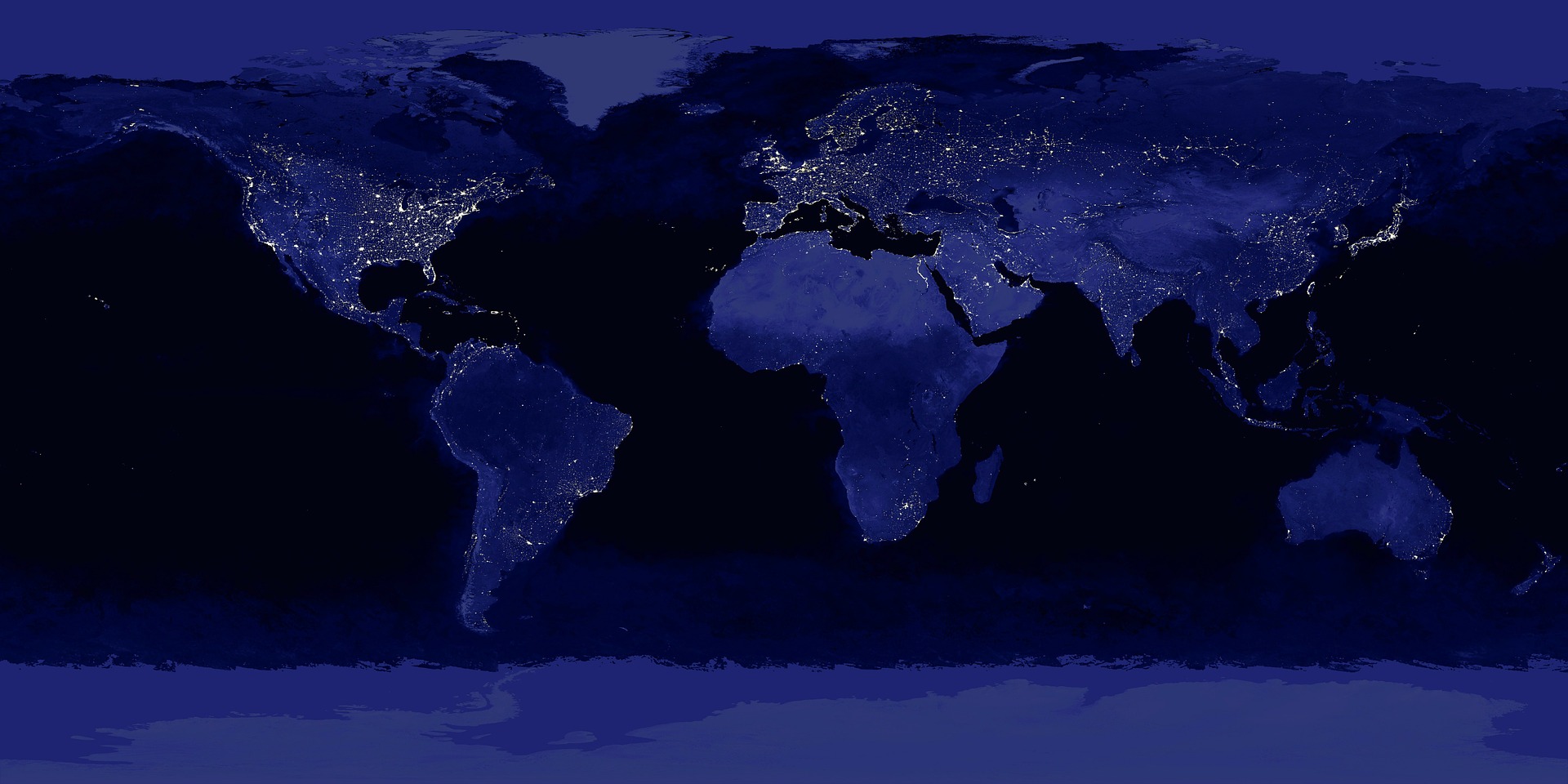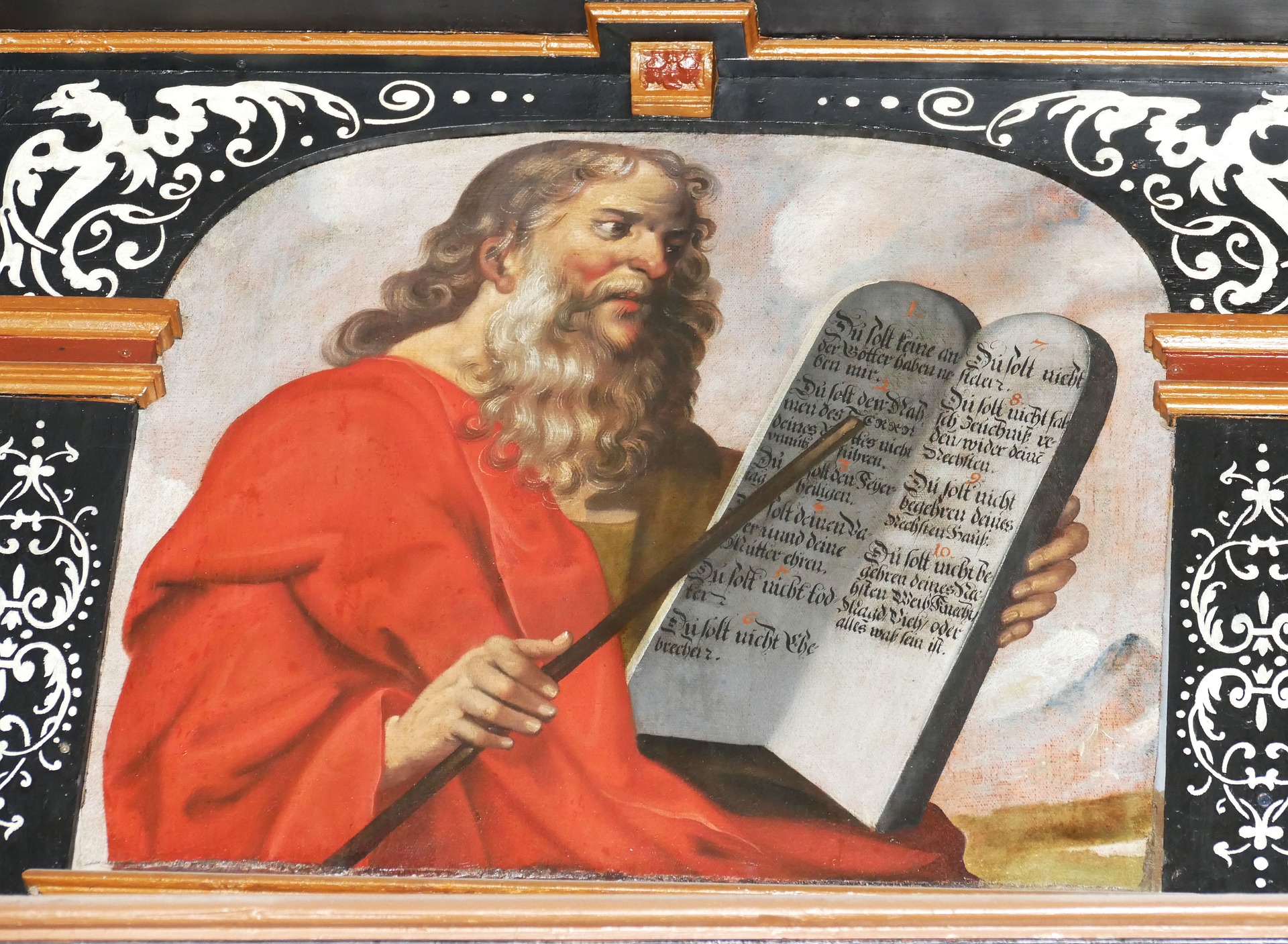What Does Your World View Have To Do With God?
Here’s a universal question- If God created the universe and the world, then who created God? Where did God come from?
All kinds of thoughts and tentative answers abound from scientific to metaphysical. See here for a video with John Lennox.
But…the startling answer of who created God, is that YOU did.
We all did!
Oh not the divine God. God is so far beyond human understanding and so Other, that we lack sufficient ability to comprehend.
But we have created our own little, restricted anthropomorphic concept of how/who/why God is.
God can never be a definition. He is more than even the entirety of the dictionary. ~Terri Guillemets
Humanity has always created its version of the divine according to what kind of protection it desired, and God’s character according to the current needs and understandings of the time.
“Did God create [humanity] in [God’s] image or has humanity created a God to suit [its] own image. Could it be that, from the very beginning, humanity has been more focused on creating a God to suit our image and our need rather than trying to understand how we are created in the image of God.” Israeli President Shimon Peres
What’s Your World View?

What is really significant here is your mind-set or world-view. Over time each person establishes beliefs about the world, our society, our own lives, our money, our environment, and all manner of things. They become our guide in how we regard the world and everything in it.
A worldview is the set of beliefs about fundamental aspects of Reality that ground and influence all your perceiving, thinking, knowing, and doing.
It is a term meaning how you interpret reality, or what you believe to be true.
We each have a mind-set, or world-view. – and though it has been vastly influenced by the ideas and actions of family, as well as the thoughts of those we read, watch or associate with, we each actually have a unique perspective on what is going on.
What you believe about who you are, where you came from, affects your whole worldview. Ken Ham
The key is that our belief system determines what we think is possible, and what we think is possible influences the results we create or allow in life.
The interactions of all our individual worldviews shapes the condition of humanity and therefore, given our technologies, of planet Earth. Foster Gamble
Your worldview is also referred to as your philosophy, , outlook on life, formula for life, ideology, faith, or even religion.
The elements of your worldview, the beliefs about certain aspects of Reality, are your:
- beliefs about knowledge;
- beliefs about the ultimate nature of Reality;
- beliefs about the origins and nature of the universe, life, and especially humanity;
- beliefs about the meaning and purpose of the universe,
- beliefs about the existence and nature of God;
- beliefs about the nature and purpose of humans in general and, oneself in particular
- beliefs about what is good and bad, what is right and wrong.
Now your worldview may not be explicit. In fact few people take the time to thoroughly think out, much less articulate, their worldview.
Nevertheless your worldview is implied in and can be partially inferred from your behavior. Also, the elements of your worldview are highly interrelated; it is almost impossible to speak of one aspect of your mind-set independently of the others.
Since it’s not possible to be positive about so many things, we deal in assumptions, and the more vague they are, the stronger becomes our belief.
Given a choice between their worldview and the facts, it’s always interesting how many people toss the facts. Rebecca Solnit
So, maybe you are a “the glass is always half empty” person, or you see the world as positive and your glass is full-up. Perhaps you view the world as inherently good, while others always expect bad things.
Whichever, you will find some kind of daily proof that supports your viewpoint, while filtering out anything that doesn’t support that opinion.

Because we are so innately self-centered, our view of God is affected by our own personal outlook and biases.
How Mind-Set Influences Your Concept of God
The way I view God differs from the way you view God, because I view the world differently than you do. But we do imagine a God that fits with our own personal ideas.

Nicholas Epley found that when people try and divine the mind of God, their opinions on God’s attitudes on important social issues closely mirror their own beliefs. If their own attitudes change, so do their perceptions of what God thinks. They even use the same parts of their brain when considering God’s will and their own opinions.
Epley’s research suggests that inferring the will of God sets the moral compass to whatever direction we ourselves are facing. He says, “Intuiting God’s beliefs on important issues may not produce an independent guide, but may instead serve as an echo chamber to validate and justify one’s own beliefs.“ Ed Yong
Is God for you trustworthy, involved in your life and willing to listen? Or perhaps you imagine God as a stern taskmaster, ever watchful to judge and punish. Is the Father imagine of God comfortable and familiar for you? Or do you view God us distant, remote, and uninvolved. Or do you understand God as supreme love?
Who is God really to you?
Understand that whatever mental image you have is precisely that- an idea that your mind-set has conjured up. Just as all of our individual and personal images of God are also products of our minds.

God is not what you imagine or what you think you understand. If you understand you have failed. ~Saint Augustine
I remember fighting with a professor over his insistence on a God of wrath and punishment, because that’s not my vision at all.
“You can safely assume you’ve created God in your own image when it turns out God hates all the same people you do.” Anne Lamott
Keep firmly in mind, that your own personal biases influence how you perceive God’s nature and intent.
Here’s a Great Example:
In Nancy’s first year in seminary, she was asked to write about who she believed God to be. She worked hard because she wanted to impress the professor, and couldn’t wait to get the paper back.
When it was returned, she went through page after page looking for comments. Finally, on the last page there were two sentences.

Who is this zapping God you serve? Come and see me, I would like to introduce you to the God I know- a loving and gracious God who cares deeply for you.
Nancy writes, “With these two sentences, my life changed forever…My professor showed me a God that was free of my projections- free of my fears and insecurities…He helped me to begin thinking about and believing in a God who wasn’t out to get me, or punish me, or judge me…and my world began to change.
How I saw others changed. How I processed what was happening in the world- and my world began to change. All because one person lovingly looked me in the eyes and said, ‘Your God is too small’”.
Perception Is the Key
The Old Testament is full of descriptions of a tribal god- one that would aid in the tribe’s survival, help win their battles for them, punish them when they went astray, reward them for righteousness.
“Each mind conceives God in its own way. There may be as many variation of the god figure as there are people in the world” Bangambiki Habyarimana
I know any number of people who can’t read through the Old Testament because God appears full of wrath and judgement. Those stories are not describing God, but only HOW THEY PERCEIVED GOD.
 Massive difference.
Massive difference.
Just because those people’s concept of God was harsh does not mean that God actually was- but only that their perception of God reflected their world-view.
To honor him whom we have made is far from honoring him that hath made us. Michel de Montaigne
How Fear Motivates Us
Judgement comes from fear and a sense of threat from difference and diversity.
Yet, look at creation which is as diverse as imaginable. We have elephants and whales, bees and chiggers, monkeys and frogs, snakes- and lions and tigers and bears, oh my! 
And not just animals, but trees, seeds, plants, fruits and vegetables. And people- tall and short, fat and slim, male and female (we could have been one sex that self-generated), all variety of colors, talents, skills, dispositions.
Seems to me that God gloried in contrast and variance.
 But humans are fearful folk.
But humans are fearful folk.
We project our fears and needs and hopes onto God, layer upon layer, until we no longer have a clue about God’s real nature. What we have conjured up is a deity that has all the judgements, discriminations and condemnations that we have, and imagine this God thinks and acts like we do.
When we have God in clear focus, His powerful presence eclipses our fear. Charles R. Swindoll
In other words, we have manufactured a God that suits us. And in so doing, we have manufactured a small, ineffectual God that we can somehow fathom because this God is so like us! We’ve enclosed God in a small box that is manageable for our finite and fearful minds
“It is not as in the Bible, that God created man in his own image. But, on the contrary, man created God in his own image” Ludwig Feuerbach
God Looms Too Large

We shy away from imaging a God so powerful and awesome that we can never understand, or imagine, or even define.
Thomas Aquinas said that all speculation of God is personal and we can’t assert anything about God because God is so far beyond our understanding. When we speak about God, we never really say anything that is true. Instead we have to speak entirely in analogies (comparisons) because that’s the best we can do, since God defies any complete or personal comprehension.
And many people literally are afraid of God: afraid of not measuring up, of feeling that things they’ve done won’t be forgiven, scared of the thought of hell.
Rather than dread or fright at the prospect of a harsh judgment, the phrase “fear of God” originally meant wonder, admiration and reverence, which includes wonder, amazement, mystery, astonishment and adoration. The fear of God now has a new, more nuanced meaning. Rudolf Otto, the Lutheran philosopher and theologian, even came up with a new word to express this concept – numinous.

Numinous means “surpassing comprehension or understanding, mysterious.” When something exceeds our scope of understanding, we instinctively have awe, respect and even fear for it.
Faith is difficult; it is hard to believe and requires risk and effort to grasp. Faith is wild and demands a lot from us as rational beings. Faith takes us on a crazy journey. By trying to make sense of things we bend the absurdities of faith to logic and make the way smooth. It is easy to believe in a faith that has been explained, but how likely are we to believe in a faith that violates everything we think we know about truth and reason?” John Wilkinson
Call to Action
So how do we begin to conceive something greater than our limited understanding of God? How do we step outside of our projections-our need to create God in our image-and free God to be God; and free ourselves to live more fully as people created in God’s image?
And what difference would it make in our world if we resisted fashioning God in our image and truly believe that God is so much bigger than the box we have tried to put God in?

One way is to write a list, or journal about what your own understanding of God is now. Then consider:
- Where did you get those ideas?
- Who or what influenced your understanding?
- Has your concept changed over time?
- What changed those ideas?
- How has your concept of God fed your needs- or not?
In one of his essays C.S. Lewis imagines that when we die and finally see God, we will not say:
Lord, I could never have guessed how beautiful you are.
We will not say that. Rather, we will say,
So it was you all along.
Everyone I ever loved, it was you.
Everyone who ever loved me, it was you.
Everything decent or fine that ever happened to me,
everything that made me reach out and try to be better,
it was you all along.

